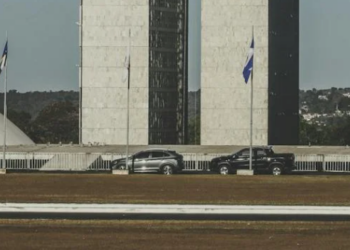by PublicABCP
Translated and reviewed by Matheus Lucas Hebling
The article Implementation of a Climate Policy Monitoring System in Brazil: Political Challenges for Coordination on Multilevel Governance Arrangements, by researchers Mariana Maia, Lizandra Serafim, and Elia Alves from the Federal University of Paraíba (UFPB), explores the political and institutional hurdles that have undermined Brazil’s attempt to establish a Monitoring, Reporting, and Verification (MRV) system for climate policy. Such a system, as outlined in the Paris Agreement, is essential for tracking progress toward greenhouse gas emissions reduction targets.
Despite efforts led by the Núcleo de Articulação Federativa para o Clima (NAFC), the study finds that one of the central reasons for the initiative’s failure was a lack of coordination among different levels of government and non-state actors.
Using a qualitative methodology, the authors analyzed official documents, regulations, and semi-structured interviews with stakeholders involved in the process. Drawing on the public policy pentagon model, they examined how federal bodies, subnational governments, and non-state actors interacted during the attempt to implement the MRV system. This approach revealed the key political and technical obstacles that hindered coordination and ultimately led to the initiative’s collapse.
One of the study’s main findings is that Brazil’s federal, state, and municipal governments failed to coordinate effectively—a major barrier to MRV implementation. While the NAFC played a central role in trying to align efforts, the lack of a final emissions report reflected a deeper absence of consensus and marked the initiative’s breakdown.
The research highlights conflicting views among federal and subnational actors regarding the system’s purpose: while some prioritized economic benefits such as access to international climate financing, others were more concerned with national sovereignty and political control over climate policy.
The study also emphasizes the vital role of non-state and subnational actors in shaping and attempting to coordinate climate policy. These actors contributed essential technical expertise and were key to capacity-building efforts. However, the lack of robust institutional mechanisms to facilitate cooperation between federal and subnational levels severely limited their impact.
This case study underscores the complexities of climate governance in a multilevel context. The authors argue that for Brazil to advance its climate agenda and meet international commitments, it must strengthen coordination between all levels of government. Moreover, the active inclusion of subnational and non-state actors will remain crucial to the success of future climate policies.
About the Authors
Mariana Maia holds a master’s degree in Public Management and International Cooperation from the Federal University of Paraíba (UFPB) and a law degree from the same institution.
Lizandra Serafim is a professor in the Department of Public Management at UFPB. She holds a PhD and a master’s degree in Social Sciences and Political Science from the University of Campinas (Unicamp), and a bachelor’s degree in Social Sciences from the Federal University of São Carlos (UFSCar).
Elia Elisa Cia Alves is a professor in the Department of International Relations at UFPB. She holds a PhD in Political Science from the Federal University of Pernambuco (UFPE), a master’s degree in Economics from Unicamp, and bachelor’s degrees in International Relations (University of São Paulo) and Economics (Unisul).
Article Details
Title: Implementation of a Climate Policy Monitoring System in Brazil: Political Challenges for Coordination on Multilevel Governance Arrangements
Authors: Mariana Maia, Lizandra Serafim, and Elia Alves
Publication Year: 2024
Where to Read: Brazilian Political Science Review, Volume 18, Issue 2








